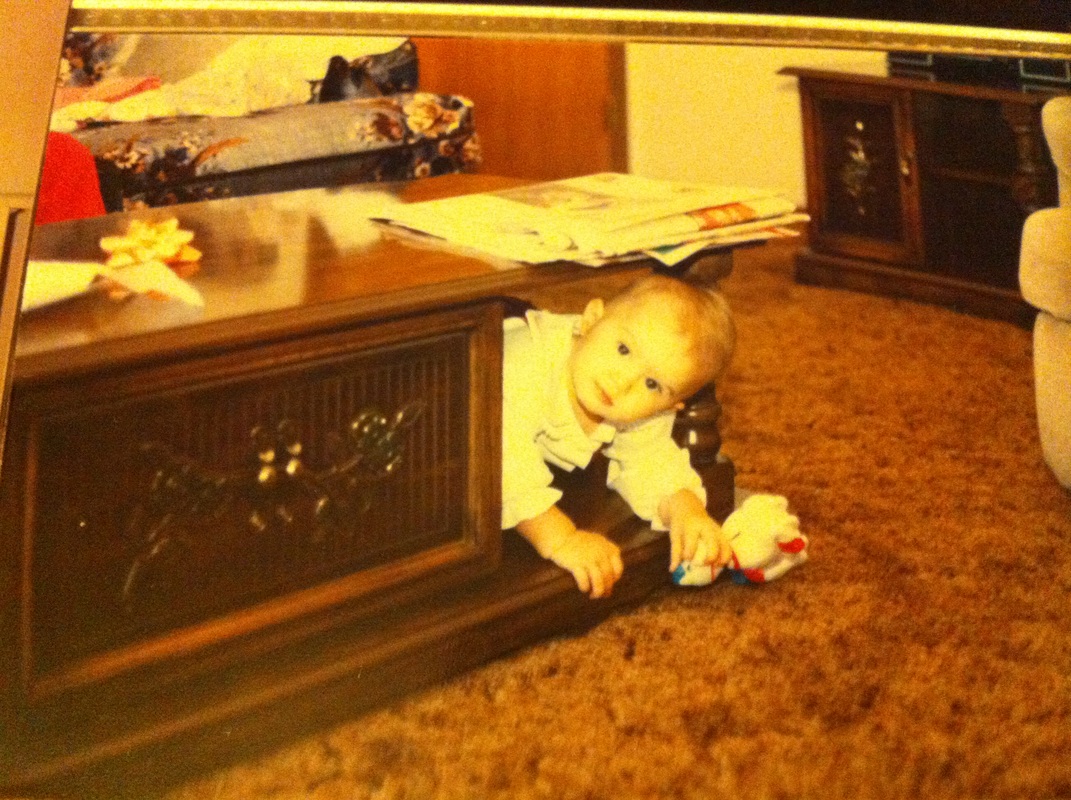| This week, I had the horrific experience of writing my first post for the MFA blog, The MFA Years. I am a contributor, and this is one of those amazing experiences that just sort of fell into my lap because I happened to be on MFA Draft '14 at the right place at the right time. So obviously I didn't want to screw it up. We were supposed to introduce ourselves, give the audience a taste as to who we were and what we were about. It was an open-ended question that could lead us into talking about applications, writing history, or our pet cats. Seeing as I don't have cats and the application process is an awful nightmarish blur, I opted for the story I thought was most important to my growth as a writer. How I learned to stop worrying and enjoy science fiction writing. This piece can be found here. I added pictures from my own personal life, I talked about a personal conversation I had with my professor, I opened up about my grandmother and my weird quirks as a child. I even touched on my elitism in college. While none of this stuff was that hardcore and shouldn't have given me a panic attack, I stayed up until about 3 a.m. reading it and re-reading it, picking over every photograph to make sure my real name wasn't in there, that I didn't say anything bad about anyone, and trying not to anger the entire literary fiction world. The piece was not controversial. I'm just a sissy. I guess this is why I cannot write autobiographical things. I tried, for a class entitled Autobiography. I wrote all about my time in the big city and the different people I'd met, but I never published it. I never showed it to anyone who wasn't my professor, and I tried to distance myself from it. I know other people have this anxiety. We live in an age that anything written on the internet or in a magazine can easily be found by anyone for the next however many hundreds of years that internet exists. This means that some stupid Facebook rant I wrote in 2006 is still very much visible to me and anyone who is interested enough in my Facebook to spelunk through eight years of selfies to find that on December 2, I was very angry at "You Know Who You Are" for disagreeing with "Whatever Stupid Politics I was Into At the Time!" So a lot of us have become a little skittish about sharing with the class. I've read so much memoir lately, and they're all about women who overcame these gigantic odds through different difficult situations, and I just think, "I know everything about you, and I've never met you." What great courage that they stand up and are sometimes the first to say, "This thing that we aren't talking about? It's happening. It's happening to a lot of us." I don't think I'll ever be that brave. I watched John Leguizamo the other night, and he discusses his father's lawsuit against him for his autobiographical one-man show. I just thought about my own dad, tearing up because of me sharing something that was between me and him, and I just can't do that. I think about my mom, my ex-best friend, my ex-boyfriends, my old teachers, my college roommates, my professors, that one guy on the bus ... they're all with me and peering over my shoulder when I write about them. I even worry about my grandma, who is now dead and gone. I put her picture up on my blog a few months ago and told her story. I really battled about doing that. Who was I to talk about her? Who was I to tell her story when I hadn't been there or when I just had one perspective? Like I said, memoir takes a lot of courage. Any one of us can sit down and make up stories and share them with each other. There's a blanket of comfort that we are not those people, we did not make those decisions, we did not lose real friends or betray them or make other people hurt. We made no mistakes. Because those people are fiction, and we just made them up. But memoir? I salute the memoirists. You stand up and shout out into the void your secrets and your truths, and other people shout back. You share your most valuable stories and most loved family and friends so we may learn something or so we don't feel so alone. While we all huddle in our own little caves, protected from scrutiny and judgment, you stand out in the storm and take it, just so we know there's someone out there for us. So thank you. Please keep writing. And maybe someday I'll learn from you how to stand out in the rain. |
|
0 Comments
|
What is this?Dawson is a writer. This is her blog. In it, you shall read about reading. And writing. And cheeseburgers. Sometimes there are tangents. Huzzah. Categories
All
Archives
May 2019
|

 RSS Feed
RSS Feed